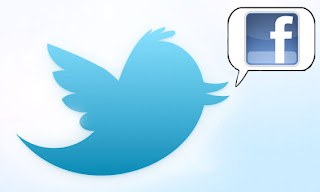 |
It's my turn to blather!
Said the lecturer to the students. |
This week we had a recorded lecture,
instead of a talk in the war room. This was highly appropriate, as this lecture
was about sound, specifically, radio. And when I say lecture, I mean an
interview with Richard Fidler (of Conversations fame on 612 (and also DAAS
fame)) and Steve Austin (Mornings, also on 612).
I have to say, it was mildly
disappointing we couldn’t see them in person, as I was hoping to make joke
about my parents liking Richard in DAAS before I was even born, much less
entering tertiary education. But I digress.
The Conversation with Richard Fidler
It's funny because his radio segment is called 'Conversations with Richard Fidler'
 |
| If you buy this radio you loose all your basic human rights. |
Obviously I’m not going to write a
transcript of the interview for you to read. It would make more sense for you
to just listen to the interview than for me to do that. But here’s the few gems
of knowledge I picked up from Richard in the interview:
·
Radio is a very different medium – especially
from tv, especially in that it is a much more intimate medium.
·
The important thing is to make listeners feel
included in the conversations you’re having – this is your job as a presenter.
If they don’t feel included or interested they’re going to get bored and tune
in to a better station. Then your ratings go down the drain and shortly after
so does your show.
·
Conventionally, a radio interview is about 7
minutes – any longer and you may start to bore the listener, any shorter and
they may not get the full details and emotion.
·
You really
need to be interested in what your interviewee is talking about. For Richard at
least, when he’s bored in an interview and tries to cover, he comes off weird
and creepily intense.
 |
| Would you trust this man if all that separated you was a table and two mikes? |
·
Pre-production is very important in getting a
feel for your segment and interviewee. You really need (at least some)
preparation for your interview/segment, whatever, so you know you’ve got the
material to cover the whole thing.
·
With longer interviews, it’s important to give
your interviewee the space to talk, to collect their thoughts, to work through
things. Importantly, always remain friendly, interested and enthusiastic
towards both your interviewee and your listeners. (Obviously, don’t head into
the creepily intense zone I mentioned previously)
And the
final nuggets of joy:
·
Worldliness is good: keep reading, keep asking
questions, expose yourself to the thoughts and opinions of people that you
don’t always agree with. Continue to improve.
·
Be beautiful.
·
I added that bit in myself.
I had Steve Austin for breakfast
Actually,
I listen to his breakfast segment. Which is called Mornings.
 |
Steve Austin: Also known as Gasbag Austin.
Teachers can be so cruel. |
·
The way you pronounce words, your enunciation,
is imperative. You’re trying to communicate, so you need to break down barriers
between you and your audience. (So don’t actually use words like imperative
when talking to the general public: you sound like a prick)
·
It’s easy to assume that what you’re interested
in is what the listeners will be interested in: that’s probably not true. Your
focus needs to change from yourself to what your audience wants, because it’s
not about you, it’s about them (unless you’re doing the graveyard shift on a
music station).
·
If you’re fake on radio, people can tell nearly
straight away – they’re not distracted by visuals so it’s easier to tell. On a related note, you often need to
change your voice when you want to empathise with someone, and your interviewee
can (subconsciously) pick up on it.
·
The
components of a good radio story: being human, and searching and exploring
for the gamut of human experience – don’t just search for facts in a story, go
for the human element, look for the emotional responses. Human beings are
emotional creatures, and they respond to genuine emotion.
·
For night-time radio you need to talk less and
listen more – listen to them and show them respect. The two are related: listening implies respect, and people respond
to that courtesy.
·
Truthfulness is radio is very important.
And
finally: don’t give up! If you really want it, go after it.















